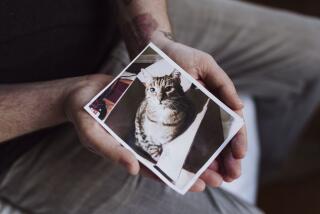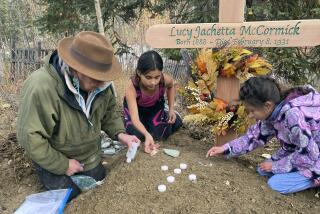In Ash Mix-Up Case, Jury Decides All Remains the Same
- Share via
Betsy Mleynek had planned, when the time came, to sprinkle her mother’s ashes off the Redondo Beach coastline the older woman loved. But one month after Mary Clark’s death in 2003 at age 84, Mleynek learned her remains had already been released into the sea.
By another family. Off Malibu.
McCormick Mortuary called Mleynek to say the labels on the wrapping of two urns had been switched. An official apologized and told her she would be reimbursed. The $1,750 check arrived months later with Mleynek’s name misspelled.
“They couldn’t even get that right,” she said in a telephone interview from her home in Salt Lake City. “They just didn’t care.”
Mleynek, her sister and other family members sued the Redondo Beach mortuary for emotional damages. It admitted negligence, and last week a Los Angeles County Superior Court jury in Torrance decided how much Mleynek’s loss was worth: $0.
Juror Margaret Strong said the jury felt that if the family were truly distraught, they would have taken the mortuary up on its offer to charter a boat in Malibu, where they could visit the spot where Clark’s remains had been scattered.
“They would have done anything to alleviate the pain,” the retired teacher said.
When Mleynek cried on the witness stand, the jurors saw a woman who was upset over the loss of her mother, not over her ashes, Strong said. “Ashes are ashes, and they’re in the ocean. By now, they’ve probably drifted out to Avenue E where they wanted them in the first place.”
Mleynek said the loss hit her particularly hard because her father, a pilot for Western Airlines, disappeared when his plane plunged into San Francisco Bay in 1953. The family never recovered his body.
She said her mother would spend hours gazing out at the sea, losing herself in the waves. “It was her way of being close to him again,” she said. “She knew he was out there.”
Steve Gurnee, a lawyer for McCormick’s parent company at the time of the mix-up, SCI California Funeral Services, wasn’t convinced. “They may have been momentarily distressed, but certainly not three years after the fact,” he said. “If they were that upset, they should have gotten professional help, which they didn’t.”
Gurnee has handled many similar cases and said it’s not uncommon for bereaved families to sue death-care companies for what he called “simple human errors.” It’s also not unusual for them to lose, he said.
Through the lawsuit, Mleynek learned that shortly before her mother’s cremation, the room’s roof collapsed. McCormick continued to use the room, although SCI owned several other functioning crematoriums in the L.A. area, said John Carey, the family’s attorney.
The worker who mislabeled the two urns testified that part of the problem was that he was working amid the roof debris.
Mleynek said McCormick intensified her pain by refusing to give her the name of the family who received and released her mother’s ashes.
During the trial, she said she learned the family had expressed a desire to meet with Clark’s loved ones and give them copies of photos they’d taken during their ceremony.
According to court documents, the other family scattered what they believed to be their relative’s ashes only to look at the urn more closely and see a different name: Mary Clark. They contacted McCormick, which gave them the proper urn.
The mortuary had that family sign a confidentiality agreement in exchange for reimbursement for all of their expenses related to the cremation and ceremony, Carey said.
Strong said jurors believed the family’s suffering did not rise to the legal definition they were given of a seriously emotionally distressed person -- one who is unable to cope with anger, grief or pain as the average person would.
Mleynek said she still suffers from crying fits, recurring headaches and nightmares.
More to Read
Sign up for Essential California
The most important California stories and recommendations in your inbox every morning.
You may occasionally receive promotional content from the Los Angeles Times.













